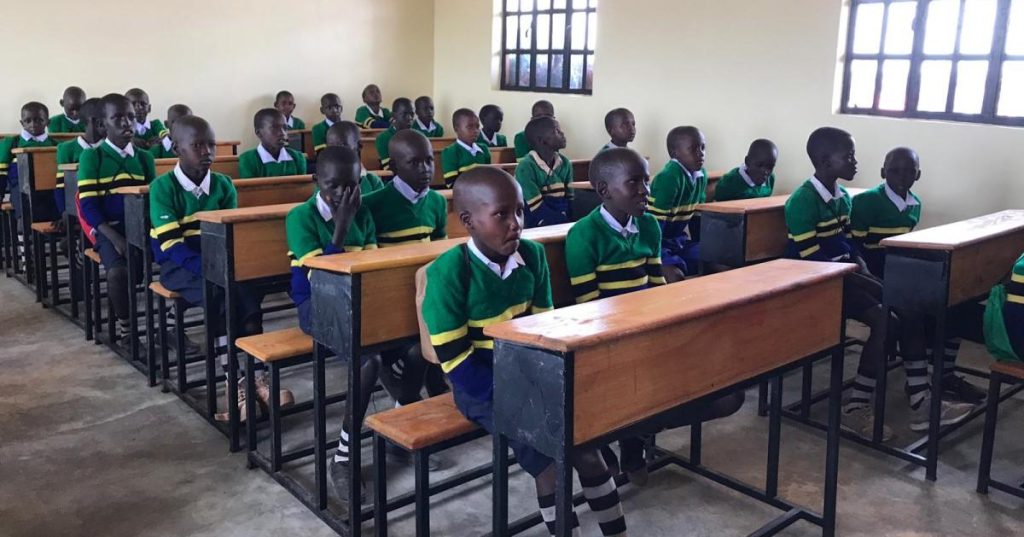In 2015, Tanzania took a significant step toward improving access to education by introducing the Fee-Free Basic Education Policy (FBEP).
This initiative aimed to eliminate financial barriers for students in primary and lower secondary education (Form 1–4), ensuring that more children, especially those from low-income backgrounds, could attend school without the burden of tuition fees.
As the policy approaches its 10-year anniversary, it is essential to assess its impact—both its successes in expanding educational access and the challenges that remain in delivering quality learning experiences.
This article examines the achievements, setbacks, and lessons learned from a decade of implementing fee-free education in Tanzania. While the policy has led to higher enrolment rates and improved gender parity, it has also exposed critical issues such as overcrowded classrooms, teacher shortages, and hidden costs that still burden families.
By analysing these factors, we can better understand what has worked, what needs improvement, and how Tanzania can move forward to strengthen its education system.
In 2007 the highest education level achieved by the majority of adults in Dar-es-Salaam was between primary levels 5-8 at 57% while 7.9% of adults in the commercial capital reported receiving no formal education.
Conditions are worse in rural areas of the country where 52.4% of adults reported primary school education being their highest level of education while 28.5% of adults reported receiving no formal education(Sumra and Katabaro, n.d.).
Given these harrowing statistics the government set out to implement an initiative to tackle the education crisis. The goals of this initiative included Increase access to basic education, Reduce gender disparities in education and Narrow the gap for children who are unable to afford education.
According to data from the World Bank, Tanzania experienced a significantly higher primary school enrolment rate in 2022, reaching 95.5% gross enrolment ratio, indicating a substantial increase in the number of children attending primary school compared to previous years.
The latest value from 2021 for secondary school enrolment is 27.91%, a decline from 30.72% in 2020. In comparison, the world average is 90.16 percent, based on data from 143 countries.
However historically, the average for Tanzania from 1970 to 2021 is 10.82%. meaning we can deduce that the implementation of the Fee Free Basic Education Policy has made some considerable positive contributions to the enrolment rate as intended by the government.
The UNESCO institute for statistics defines the gender parity index as is the ratio of girls to boys enrolled at primary and secondary levels in public and private schools for gross enrolment in primary and secondary education.
For primary school from UNESCO sources, the latest value from 2021 is 1.04% which is equivalent to the ratio 13:1250, meaning that for every 1250 male students enrolled in primary school in Tanzania there are only 13 of their female counterparts.
This is an increase from 1.03% ( 103 female students per 10,000 male primary students) in 2020.
In comparison, the world average is much higher at 0.99%, based on data from 66 countries according to UNESCO.
As for the gender parity index in Tanzania in secondary school, the latest value from 2021 is 1.08 % (equivalent to a ratio of 27:2500), a decline from 1.1 % (equivalent to a ratio of 11:1000) in 2020.
It is important to note that some of this may be attributed to other factors such as the decline in the number of individuals that hold outdated beliefs about women’s place in education as well as an increase in the average income level.
It means there are more monetary resources available to send their children to receive primary and secondary level education.
The implementation of the Fee Free Basic Education Policy is undoubtedly a strong step in the right direction to encourage further progress.
Conversely some of the challenges faced by the education policy are overcrowded classrooms and teacher shortages.
As more students fill up classrooms the number of teachers has been struggling to accommodate the changes.
On July 20, 2024, a strategic initiative was announced to address concerns regarding the rising need for teachers and the quality of education provided nationwide. 11,015 new teacher positions were announced to be open for applications across 26 regions of the country.
Early childhood, primary, and secondary school educators are the target audience for the majority of these jobs, with a sizable portion going to maths and science teachers.
More recently, Speaking at the launch of the Education and Training Policy (2014, 2023 Edition) in Dodoma recently, February 1, 2025, President Samia emphasised the government’s resolve to re-examine the advantages of teaching and make sure that they are appropriately acknowledged and valued as the foundation of all professions.
As Tanzania’s Fee-Free Basic Education Policy reaches its 10-year milestone, it is evident that the initiative has made significant strides in increasing school enrollment and promoting gender parity.
However, challenges such as overcrowded classrooms, teacher shortages, and hidden costs continue to hinder the delivery of quality education.
While recent efforts, including the expansion of teacher recruitment and policy reforms, indicate a commitment to improvement, sustained investment and strategic planning will be crucial.
Moving forward, Tanzania and its government must focus on balancing access with quality, ensuring that every child not only attends school but also receives a meaningful education that empowers them for the future.
Read more about The 10-Year Drop in Education Spending: What’s at Stake for Tanzania’s Future?


Very powerful piece of article